Posts tagged disease

Trying to unlock a new door…..
Nov 28th
How is drug development moving along? Well, this is a very good question for we are still plagued by some elusive diseases, cancer for example. There have been many drugs developed targeting proteins involved in disease states some of which have proven to be quite effective. However today the steam engine for identifying drug targets to proteins involved in disease is becoming ever more difficult. Apparently over the past decade or so, the number of new drugs targeted toward disease has declined. This is primarily due to the fact that developing new medicine has become more difficult to do. It More >

The Medical Sleuth
Oct 31st
When we think of a detective the first thing that comes to mind is an investigator, either a member of a police agency or a private entity. However there are unique detectives within the multifaceted arena of medicine. All though we might already think of most doctors as detectives there are special doctors, units, working at the National Institute of Health’s (NIH) undiagnosed disease program. Doctors such as William A. Gahl at the NIH are disease detectives that try to elucidate the causes and genetic basis involved in the hundreds of unsolved and mysterious diseases that arise each year. Dr. Gahl More >
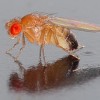
Model Organisms
Oct 12th
I asked a group of 5th graders the other day whether or not we can learn anything from studying other living things. For example, if we mutate or change the DNA of another organism, like fruit flies (D. melanogaster), can we learn anything about what can happen when human DNA changes? For this particular class, it seemed to be an absolutely absurd question. This could have been because the thought of fruit flies made them ill right before lunch, or they were unsure about how much we have in common with fruit flies.
So we got into a discussion about model More >
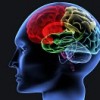
Will insulin come to the rescue of AD patients?
Sep 27th
Alzheimer disease (AD) is a neurodegenerative disease of the brain that is divided into early- and late-onset groups. AD is characterized by the build up of amyloid plaques, neurofibrillary tangles and the loss of connections between neurons. It is the most common type of dementia especially in the elderly. The exact causes of AD are elusive at the moment but are most likely the result of genetics and other factors. Scientist have been working hard to identify individual and or groups of genes responsible for the disease. Although the scientific community has identified may genes involved in early and late More >
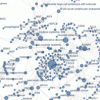
Cancer Genomics: so many mutations!
Feb 18th
The human genome is the complete collection of over three billion bases in each of our cells. Cancers accumulate multiple changes, or mutations, in their DNA that contribute to the disease by changing how cells behave. For instance, cancers need nutrients to grow. Very often, they get these nutrients by producing signals that encourage new blood vessel formation. Finding the mutations that lead to cancer is very difficult. For one thing, even for cancers that affect the same tissue and look similar, the mutations can be very different. Also, one of the hallmarks of cancer is an increased rate of More >
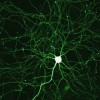
RBD and Neurodegeneration
Sep 2nd
In an earlier post I blogged about the nature of dreams including phases of sleep and why we dream. In the blog I had mentioned a sleep disorder known as REM sleep behavior disorder (or RBD). It’s a mysterious sleep disturbance where the normal atonia (muscle paralysis) during sleep malfunctions, and the dreamer is left to act out their dreams. Those with this disorder (predominantly male) tend to have dreams that are increasingly violent and involve fighting off an attacker. In their sleep, these people act out every punch, kick, twist and scream with their sleeping bodies, often times injuring More >

Recycled DNA
Aug 25th
The majority of our DNA does not code for protein or RNA and does not seem to regulate how the information is used. Sometimes referred to as “junk” DNA, these regions make up about 98.5 % of our genome. Is this DNA really junk?
Scientists have recently identified a section of “junk” DNA that can regain function and cause disease. The section of DNA is made of repeat regions of the same sequence. They found that individuals who have 1-10 repeats on the end of chromosome 4 can develop one of the most common forms of muscular dystrophy, FSHD. The goal now is More >

Fighting Addiction
Aug 13th
Having an addiction can be devastating, to those that have it and to those that are exposed to it. The addiction can be to a variety of different things such as alcohol, drugs, gambling, internet shopping, video games or even work. But what causes these addictions? Why do some people have the ability to enjoy these things, yet leave them, while others seem to never be able to stop?
Well, it could be your family and it could be your environment. Studies have shown that addictions run in families. In fact, if a parent has an addiction, the child is 4 More >
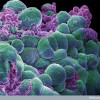
Why no cure for cancer?
Aug 5th
I was looking through some of the comments on the blog and thought I would address a few of them, as I imagine others would have similar questions. One reader wanted to know why some cancers are more fatal than others. For example, the five-year survival rate for prostate cancer is nearly 99%, while it is 4% for pancreatic cancer. There are several reasons for this. First, some cancers are by nature slow growing and unlikely to spread through the body, like prostate cancers, while other cancers are very aggressive and often metastasize. Another issue is diagnosis: there are good More >
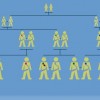
Genes Don’t Exist to Cause Disease
Feb 17th
It is not uncommon during labs on mutations, to discuss that mutations can cause genetic disease. Students will use the phrase “the gene for breast cancer” or “the gene for hemophilia” when these discussions take place. What many think, is that individuals with breast cancer or other genetic diseases have a gene that others do not. In reality, they have a gene that everyone has, but the gene has a mutation that affects its function. Genes don’t exist to cause disease. This is a recurrent theme for me!
For example, when someone has hemophilia (a blood clotting disorder), there is a More >
